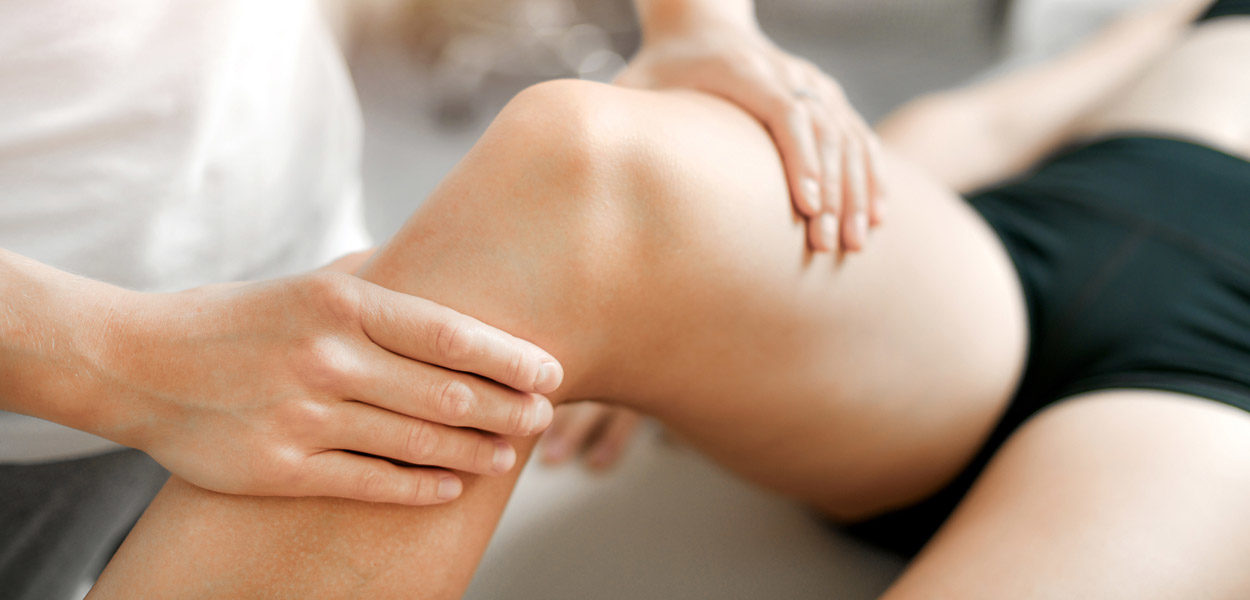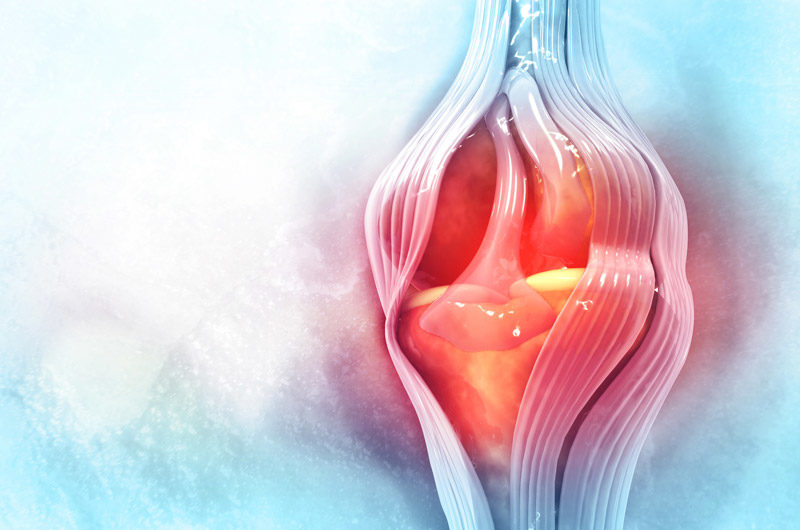section-1414e32

section-018cc4c
Pre- and post-surgery physical therapy for a meniscus injury is necessary to support recovery, reduce the risk of complications, and shorten recovery time.
What is a Meniscus?
The meniscus is composed of two C-shaped pieces of cartilage that serve as a cushion between the shinbone and thighbone. A meniscus injury can be caused by forcefully twisting or rotating the knee, either through aggressive pivoting or making sudden stops and turns. Other activities that can lead to a torn meniscus include kneeling, deep squatting, or heavy lifting.
Symptoms of a torn meniscus include:
- A popping sensation
- Swelling or stiffness
- Difficulty fully straightening your knee
- Pain, particularly when twisting or rotating your knee
- Locked feeling in the knee when trying to move it
- Feeling as if your knee is giving way
Who Needs Surgery?
Some meniscus tears may only require conservative treatment — rest, ice, and medication, while others may require surgical repair and physical therapy. If pre-surgery physical therapy fails to provide relief, patients may need surgery, followed by physical therapy designed to increase and maintain knee strength and stability.
section-24f3387


section-c8617d2
What to Expect During Physical Therapy
The rehabilitation goals of the first phase of physical therapy include reducing swelling, minimizing pain, restoring patellar mobility, restoring full extension, restoring flexion, and minimizing arthrogenic muscle inhibition.
Patients will be instructed on how to walk with a locked brace and how to climb stairs. Intervention efforts will involve swelling management and performing exercises designed to improve range of motion and strengthen key muscles.
A few exercises patients will perform include:
- Patellar mobilizations
- Seated assisted knee flexion extension
- Heel slides with towel
- Low intensity and long duration extension stretches, such as the prone hang and the heel prop
- Supine passive hamstring stretch
- Quad sets
- Straight leg raises
- Hip abduction
- Knee extension
During the second phase of rehabilitation, patients will progress to riding a stationary bicycle, and add the following exercises:
- Calf raises
- Side lying hip external rotation-clamshell
- Plank
- Balance exercises
- Joint position re-training
The third phase of rehabilitation will focus on maintaining full extension, normalizing gait, safely improving strength, promoting proper movement patterns, and avoiding post exercise pain and swelling. The physical therapist will guide patients through the following exercises:
- Supine active hamstring stretch
- Standing gastroc stretch
- Soleus stretch
- Prone quad stretch, standing squat stretch, and kneeling hip flexor stretch
- Partial squats
- Ball squats, wall slides, and mini squats
- Prone hamstring curls
- Bridges
- Hip hikes
Patients will also use the following equipment:
- Stationary bicycle
- Leg press machine
- Hip abductor and adductor machine
- Hip extension machine
- Roman chair
- Seated calf machine
The last few phases of rehabilitation will focus on helping the patient regain full range of motion so they can return to playing their sport. The patient will gradually progress from non-contact practice, to full practice, to full play. The physical therapist will test the patient’s abilities to perform certain exercises to determine when they are able to safely resume athletic activities.
Upon successfully completing pre- and post-surgery physical therapy for a meniscus injury, patients should be able to play their sport without any pain, swelling, or restrictions in range of motion.
